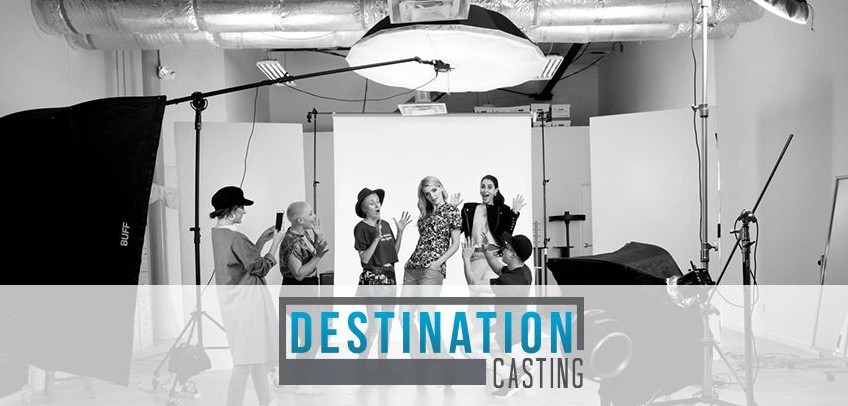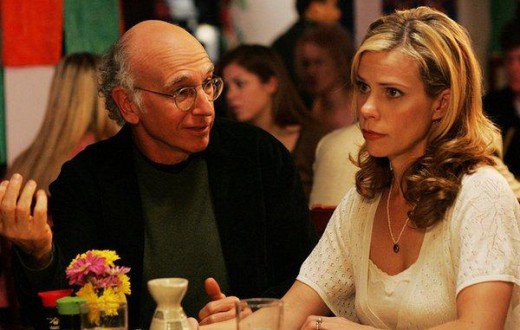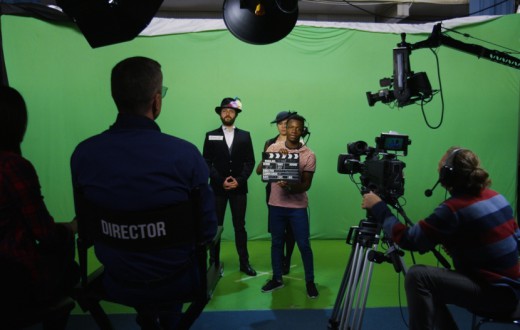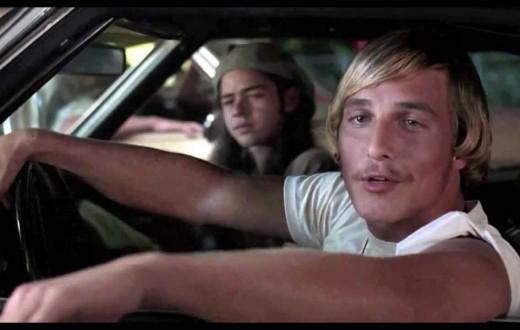From background actor to extras casting director, January Curry is the Atlanta powerhouse behind her own company, Destination Casting. Her first dip into the casting world was as a casting assistant for George Pierre where she quickly found her footing in principal and background casting for major network shows and theatrical releases. However, that same entrepreneurial spirit that propelled her into the entertainment industry, self-described as “a bug that never goes away,” then compelled her to start Destination Casting, now approaching its five year anniversary. Casting for networks like SYFY, BET, and Lifetime, January and her team specialize in background talent but don’t be intimidated by those big network names. Destination Casting is as resolute in delivering quality talent to any size production as it is determined to remain boutique and personable.
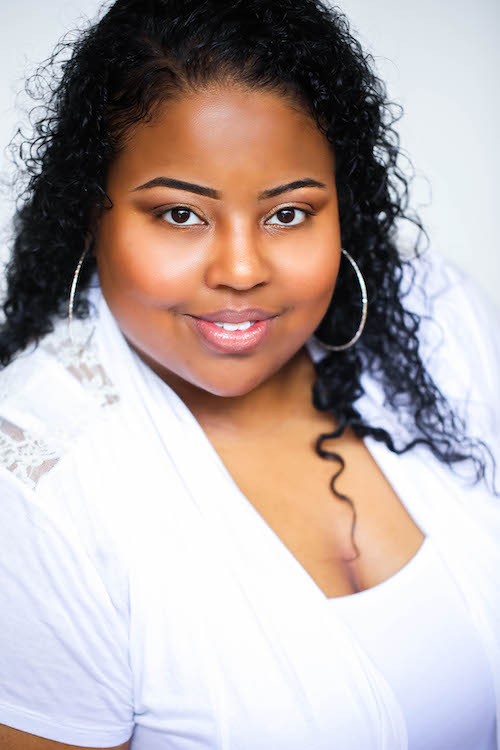 I spoke to January Curry to understand why you should “fire-start” your career in Atlanta and how having the right conversations with the right people can be a significant step towards becoming a successful working actor.
I spoke to January Curry to understand why you should “fire-start” your career in Atlanta and how having the right conversations with the right people can be a significant step towards becoming a successful working actor.
Tell us a little bit about yourself and your journey in the industry?
My very first film I did, I was an extra and I take pride in that. It was a film called “Milk Money.” I think I was probably ten or eleven. It was a pivotal point for me knowing that I wanted to be in the business. Every child that is artistic believes they’re going to be an actor or believes they’re going to be a singer. They think they’re going to be Beyoncé. So coming into casting, it was almost one of those destined things— those things that you didn’t know you wanted to do but end up doing.
I started doing extra work and I met George Pierre, the casting director, and he cast me as an extra on something and one day I just said, “you know what? I’m going to be your assistant.” We laughed about it and a couple weeks later, I was his assistant. I started doing principal casting first and a few years later, I decided I wanted to branch off and start my own company and he was super super supportive. When I branched off, we were blessed to already have extras [and] casting jobs lined up. We just kinda took the ball and ran with it with Destination Casting immediately.
Can you explain the process of casting from start to finish? It’s helpful for actors to see and understand exactly what you guys go through when you’re booking someone.
We’re kind of the filtering system. We come in to make the decision along with the director and producers. So we’re hired by the production and we get the project, [then] they let us know what talent they need, or they’ll just send us a script and the character breakdown. So our job is to go ahead and break it down. We release the roles, whether we’re releasing it on directsubmit.com or other platforms, to the public and to agents. At that point is where we take and narrow down [through] audition or just a picture, who we want to send over to the director and the producers. With background castings, we look at all these pictures and we’ll send over the best pictures for [a] particular background role. We’ll have a conversation with the producer and the director [and ask], “okay, who do we think is the best fit for this job?” And then, once that’s done, we go back and we make the offer [to the talent].
For us, the process is not as glamorous as people think— we have to think in terms of what does the scene need? What does the director want? What does the producer want? What does the network want? So we work with a lot of different entities at the same time.
How do you think an actor can cut through the competition to get the attention of you or directors?
For me, it’s about following directions first. That’s our first introduction to you. Are you sending all of the exact information that we’re asking for? No more and no less. Casting directors will ask for something specific, even when it comes to like self taping and I’ll say, do this [or] this is what your slate should say, this is how it should look. Any more, any less— that’s kind of a red flag that you don’t follow directions. For me, it’s doing exactly what you’re asked, submitting exactly as instructed, and making sure those photos are on point.
Do you find that if you see a bad headshot it affects whether or not you will book that person for a job?
It definitely depends on the level [of the actor’s experience] and what role we’re casting. If you’re absolutely brand new, you may have some leniency there. If it’s a background role, we don’t expect you to have a professional headshot. However, you have to be mindful of the photo itself; if we can’t see your face or you have too much makeup on or it’s clearly a modeling shot. Those are the things that you have to be conscious of.
Do you have any tips on delivering the best self-tape?
I have to go back to following directions and then the biggest thing— turning your tape in on time. Send it in early. Don’t wait until the last minute to send anything. If it’s due on Tuesday, try to get it in on Monday. The reason why [is that] we do look through the tapes before the due date. Right? Of course we do. We’ll look at the tapes that come in first and then that becomes your subconscious standard. We are setting the bar from the first tape we see.
I know you mentioned that you have acting experience, especially as a kid. How has being an actor informed your career as a casting director?
It has made me want to educate more. It’s not always about someone getting the part or getting booked. It’s more helping them understand how to navigate this industry. We don’t have a lot of time as casting directors to give feedback or to say why you didn’t get booked on something. But [my acting experience] does allow me to have a little bit more understanding in their process, understanding the hustle— especially someone that wants to become a working actor. If I have an extra that I’ve worked with [or] booked on a number of projects and I know they want to become a working actor, I’ll look out for things for them to put them in a place where they could get bumped up on set. So it makes me want to take the time to educate more because somebody took the time to educate me and answer my questions.
We get a lot of stand-ins that are brand new and they’ll say, “January, how do I become a stand-in? How do I get experience?” [I’ll say] Okay, you’ve never stood in before; this is my phone number, any question you have even if you think it’s the dumbest thing, like, what does this mean on the call sheet? Ask me. You have an open door to ask me because people are not going to take the time to answer your questions. Not because they don’t want to, they just don’t have the time.
What do you find is the biggest and most common obstacle between your clients and finding continuous success as a working actor?
I think that the common mistake actors make is not understanding the role of the casting director versus their agent versus any other position in production. What would help them is understanding who does what in regards to their career because then they can navigate the industry in the appropriate fashion. You want to make sure you’re having the right conversations with the right people.
When should an actor join SAG-AFTRA to make the most of it?
Talent asks me this question all the time. I would say it’s totally up to you when you think is best and when you can afford it. Meaning, you’re booking consistently to pay your dues. Some people may not be ready, not because you don’t have the talent, but because you’re not in a place where you’re consistently booking.
What is unique with a production shooting in Atlanta? How does it compare to New York or LA?
We have a lot more indie projects here. That doesn’t mean small budget because the size of the budget doesn’t matter, [but] there are a lot more independent companies [making films here]. There’s production companies and studios being built here. Productions are happening. We also have a lot more non-union projects in Atlanta and in the southeast in general. Atlanta is already in its own light because the studios are popping up and the projects are being shot.
With that said, do you think Atlanta is a decent place for younger actors or people getting started in the industry to consider moving to?
I think that it’s the best place to get you started because you can get booked on a major network show [because] a lot of the major networks are shooting here. You can fire-start your career here. And that’s what most actors do these days— they start here and then they move to LA. And on another spectrum, the cost of living is cheaper [and] there’s plenty of work [so you can] take the time to audition.
Through your time in the business, what have you seen as your biggest challenges or achievements?
After I got a little bit older and changed my direction, I started a family. So we start thinking, okay, stability. But when you’re creative and you have those particular gifts, they never go away. And I say this to actors all the time— If you have that bug, it’s not going anywhere. [But] of course, you have to pay bills and of course, you have to be stable. With myself and having children, it was more of just making sure that I had a foundation for myself and my family so [I] kind of changed directions for a while. But [I] always did a few little things here and there on the side, whether it was in music or in film. And one day, [I] just kind of broke free and decided, you know what? Corporate America isn’t for me, I need to follow my passion.
When I talk to actors sometimes, I say you have to do some soul searching and figure out what it is that makes you happy. We have to pay bills, we have to eat, you have to keep a roof over your head. But I knew I wanted to be in this industry, not necessarily as an actor. When I took that leap of faith to leave my corporate job and come back into the industry, it was definitely a struggle.
Your company’s mission statement mentions setting a new standard within the casting industry. In what ways is destination casting raising the standard?
For us, it’s striving to continue to be great at what we do and bringing great talent to the production. We want to continue to keep that hands-on feel no matter how big of a project we take on. I still like to have that feel of being a boutique company that you can reach out and touch us. Especially when it comes to background talent, they may not understand how important they are to that set. I don’t want talent to feel that they’re just a number on a set of skins. To me, we are a door of opportunity for the actor. We are creating an opportunity for you to be in a space that can propel your career. I don’t take that position lightly at all.
So Destination Casting is coming up on its five year anniversary. Where do you see Destination Casting in the next five years?
We’re definitely going to continue to grow. We’re not in competition with any other company. We’re grateful to have the projects that we do. We [treat] every one of them the same. For us… it’s just longevity; continue to get great projects, continue to make great product[s] for the productions, and bring in great talent for them.
Is there anything else you’d like to say about you, Destination Casting, or to actors?
To actors— don’t stop. Never stop. Never quit. Nope. Don’t ever give up on that fire because even if you never become the biggest, at least you’ll be fulfilled in doing something that you love.
Right. Like you said, that bug never goes away…
It doesn’t. I have children and I say the same thing I’ve told you— if it’s something you love, it’s not going to go away. So just do it. You’re going to fall, yes, you are. But you can always come home.

